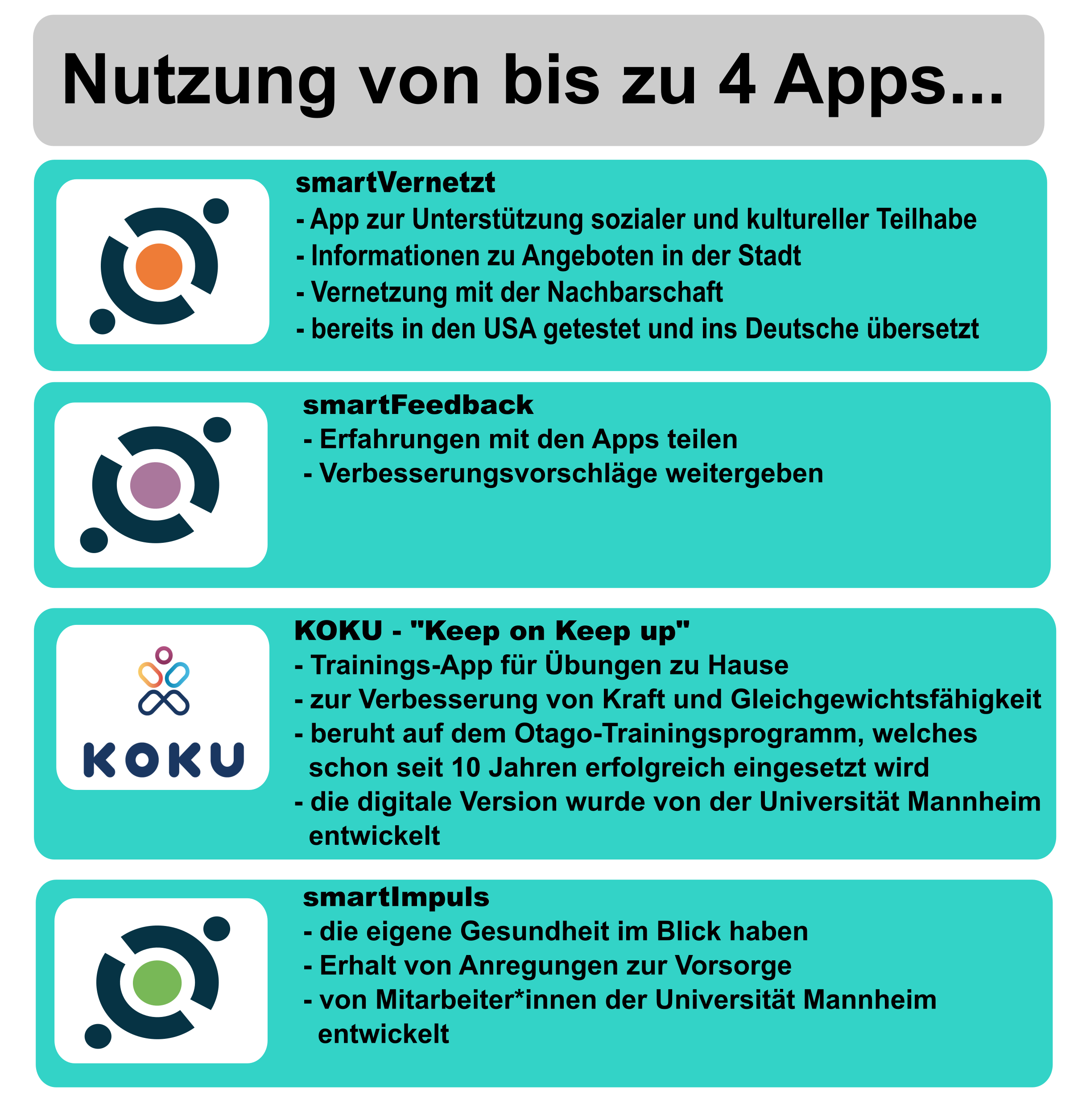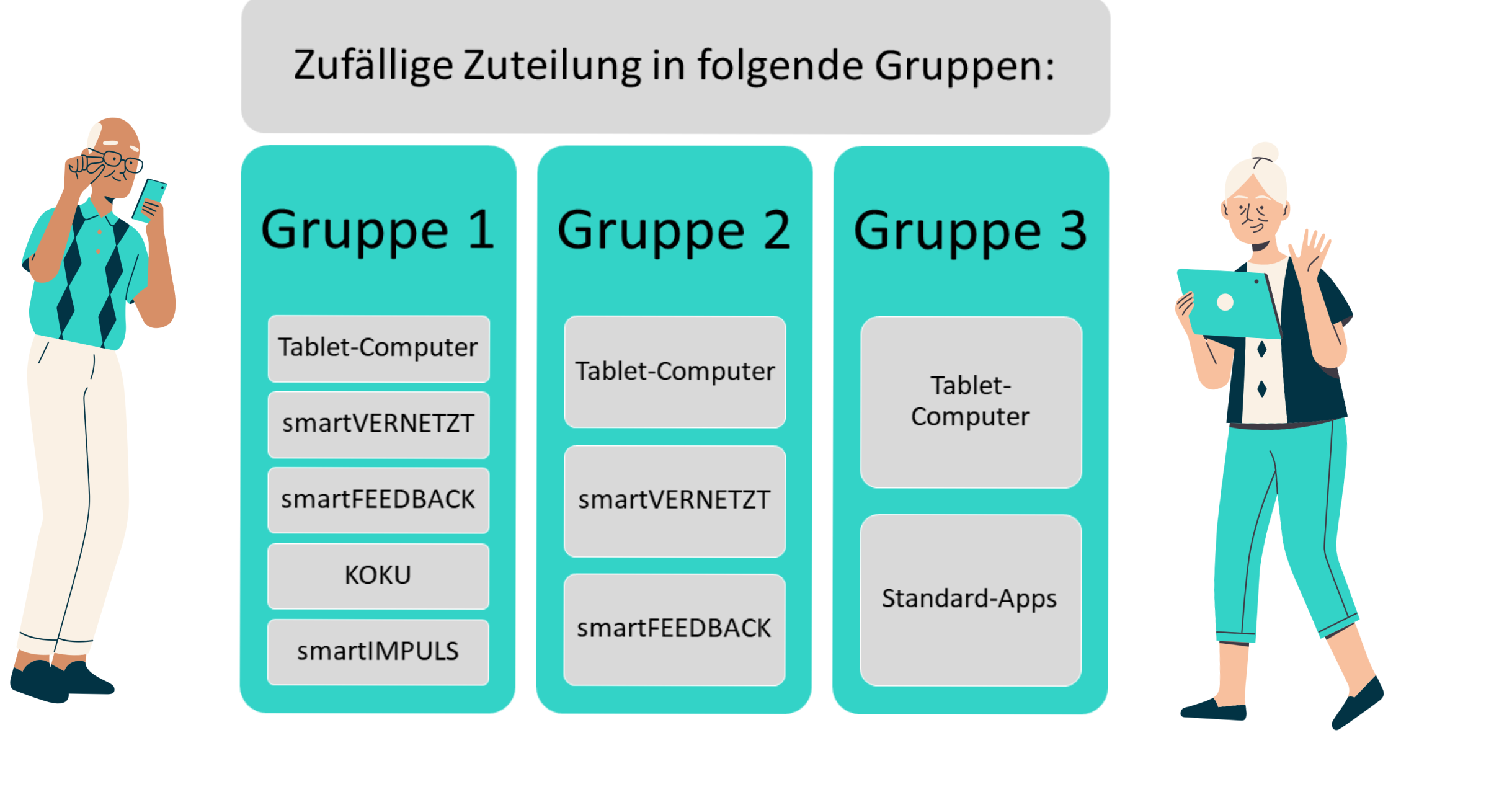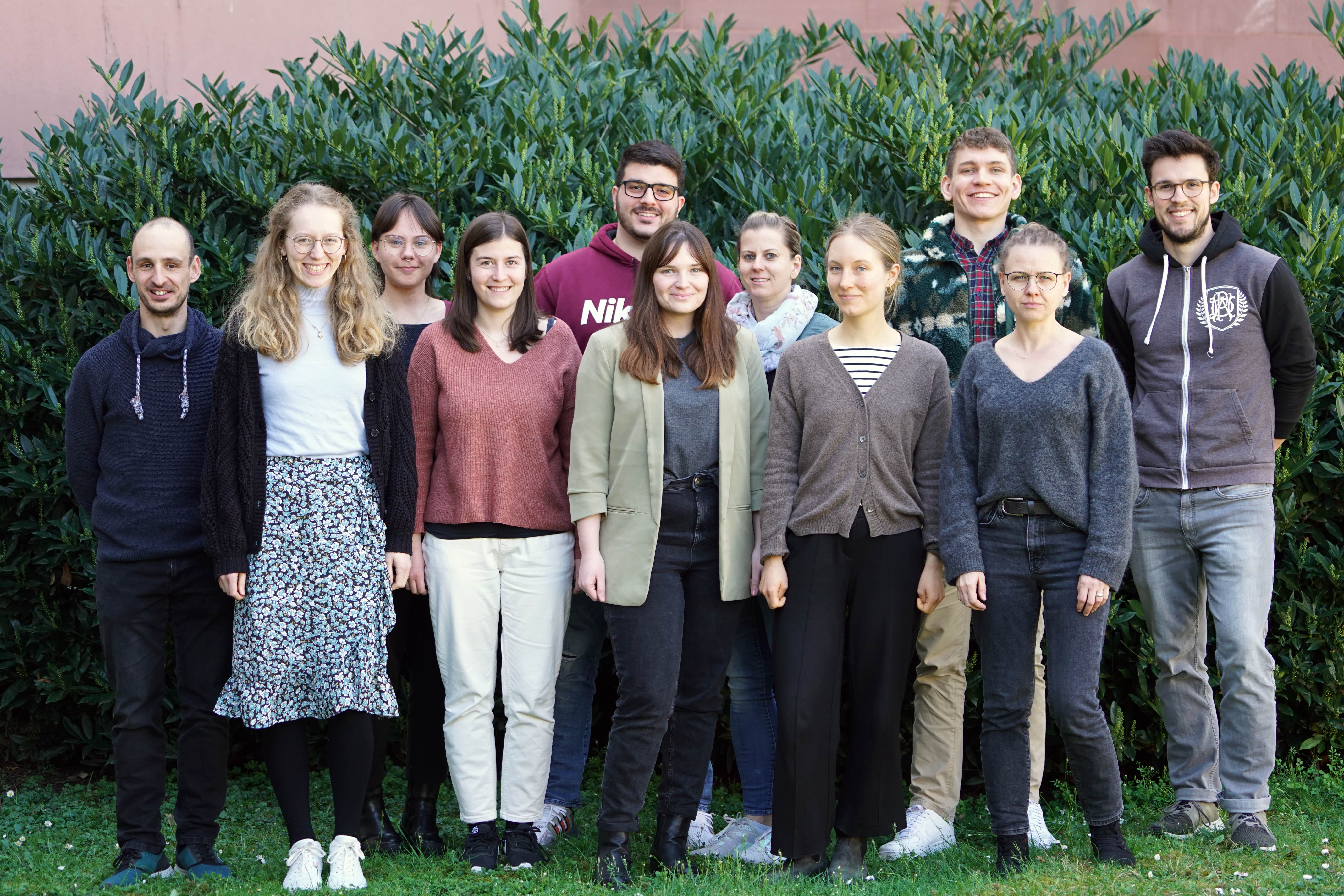Studienablauf
Die SMART-AGE-Studie wird in Mannheim und in Heidelberg durchgeführt und von beiden Städten offiziell unterstützt.
Wir werden nach dem Zufallsprinzip Mannheimer*innen und Heidelberger*innen über 67 Jahren postalisch kontaktieren und einladen, an unserer Studie teilzunehmen. Es handelt sich also um eine zufällige Stichprobe.
Wenn Sie bei unserer Studie mitmachen, werden Sie unsere "Studienpartnerin" bzw. unser "Studienpartner”, denn mit Ihrer Teilnahme gestalten Sie die Studie wesentlich mit.
Als Dankeschön geht das für die Studie benötigte Tablet in Ihren Besitz über.
Die Genehmigung für die Studie wurde von der Ethikkommission der Medizinischen Fakultät Heidelberg erteilt. Außerdem wurde ein umfassendes Datenschutzkonzept nach DSGVO Norm erstellt.
SMART-AGE Apps
Im SMART-AGE Projekt können Sie bis zu 4 Apps bei Studienteilnahme erhalten:

Gruppenzuteilung
Im Studienverlauf werden alle Studienpartner*innen zufällig und gleichmäßig drei Gruppen zugeteilt.
Je nach Gruppenzugehörigkeit erhalten Sie...:
… in Gruppe 1: das Tablet mit den vier SMART-AGE Apps smartVERNETZT, smartFEEDBACK, KOKU und smartIMPULS
… in Gruppe 2: das Tablet mit Standard-Apps und den zwei SMART-AGE Apps smartVERNETZT und smartFEEDBACK
… in Gruppe 3: das Tablet mit Standard-Apps (wie bspw. Emailprogramm, Kalender, Taschenrechner)

Hausbesuche
Je nach Gruppenzuordnung erhalten Sie über das Jahr verteilt zwischen drei und fünf Hausbesuche.
In diesen Hausbesuchen werden wir Ihnen zum einen eine Technikeinführung in die Bedienung des Tablets und der Apps geben. Zum anderen werden wir verschiedene kognitive sowie motorische Aufgaben und Übungen mit Ihnen durchführen.
Darüber hinaus bitten wir Sie, zu Beginn sowie nach 3, 6, 9 und 12 Monaten mit Hilfe Ihres Tablets verschiedene Fragebögen auszufüllen.

Feldteam
Bei den beschriebenen Hausbesuchen lernen Sie die Mitarbeiter*innen unseres Feldteams kennen. Vielleicht werden Sie die folgenden Gesichter wiedererkennen...

Studienteilnahme
Um an der Studie teilnehmen zu können, sollten Sie…
- ... mindestens 67 Jahre alt sein
- ... in Mannheim oder Heidelberg in Ihrem eigenen häuslichen Umfeld wohnen (auch: Betreutes Wohnens; nicht: im Pflegeheim wohnhaft)
- ... einen funktionsfähigen Internetanschluss besitzen und mindestens geringe Vorerfahrungen beim Umgang mit einem PC, Notebook, Smartphone oder Tablet haben
- ... die deutsche Sprache verstehen
- ... nicht mehr als 20 Stunden pro Woche erwerbstätig sein
Die Studie und die Apps sind nicht für Sie geeignet, wenn Sie akut oder chronisch schwer erkrankt sind.

